Effortless Daily Habits for Naturally Balanced Blood Pressure
You might not feel your blood pressure rising—but your body does. Left unchecked, it becomes a silent architect of risk: fueling heart attacks, strokes, kidney damage, and chronic fatigue without warning signs. But here’s the good news—keeping it in check doesn’t require drastic overhauls or a prescription pad. The real magic lies in the small things you do every single day. That’s why we’ve expanded our guide to 31 Effortless Daily Habits for Naturally Balanced Blood Pressure—tiny, science-backed shifts that slip easily into your routine but deliver outsized results. From hydration tweaks and posture upgrades to breathing cues and bedtime rituals, these habits work quietly in the background to support a healthier, steadier you. Whether you're managing hypertension, navigating occasional dips, or simply optimizing long-term wellness, these tools are designed for real life—not perfection. Because balance isn’t a finish line. It’s a rhythm—and it starts here.
1. The Role of Nutrition in Blood Pressure Management
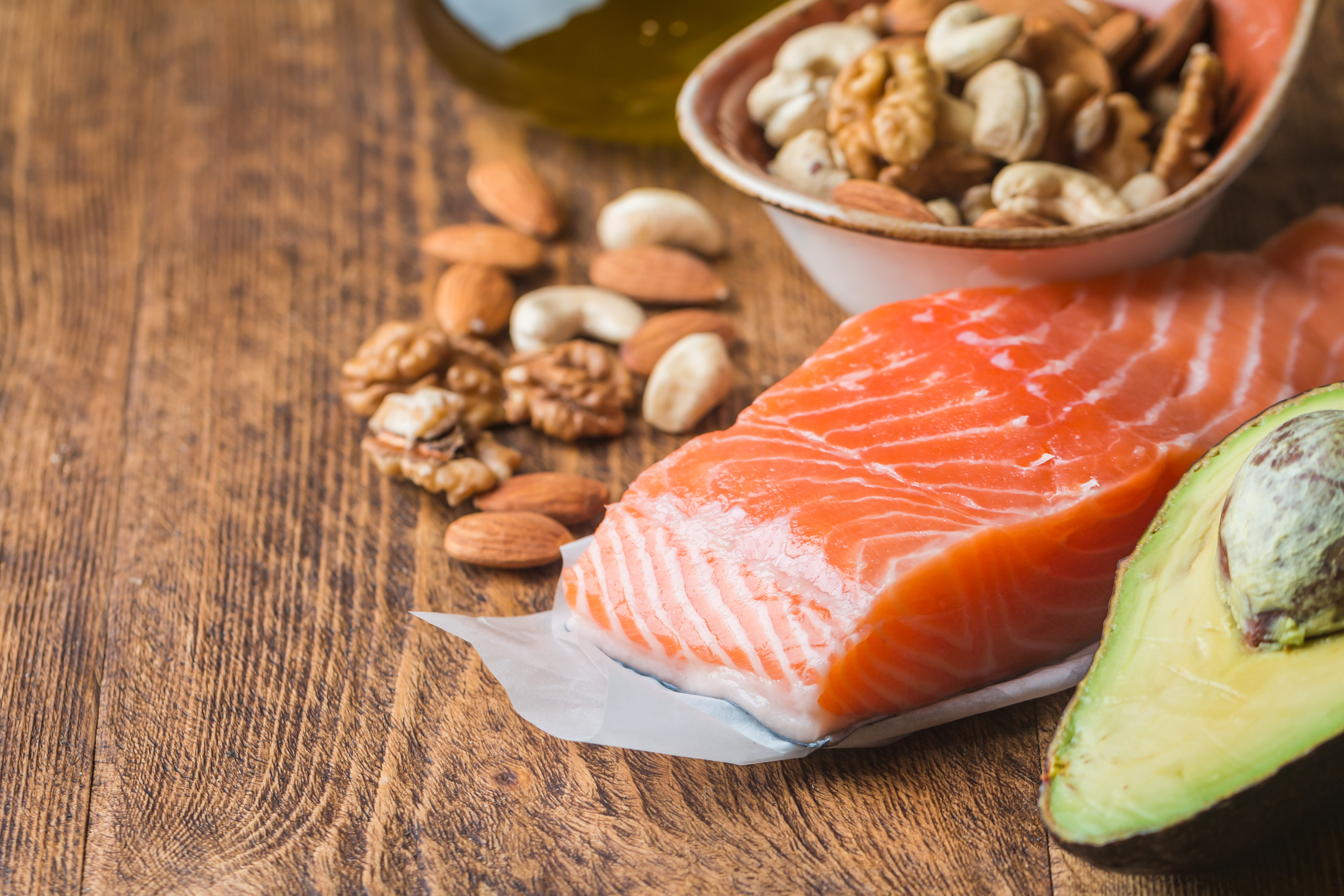
Nutrition plays a pivotal role in managing blood pressure. A diet rich in fruits, vegetables, whole grains, and lean proteins can significantly impact your blood pressure levels. Potassium, found in bananas, sweet potatoes, and spinach, helps balance the amount of sodium in your cells, promoting healthy blood pressure. Additionally, reducing sodium intake is critical, as excess salt can lead to increased blood pressure. The DASH (Dietary Approaches to Stop Hypertension) diet, specifically designed to combat hypertension, emphasizes foods low in sodium and high in potassium, calcium, and magnesium. By making mindful dietary choices, you can support your cardiovascular system and maintain balanced blood pressure.
2. The Power of Regular Physical Activity

Engaging in regular physical activity is one of the most effective ways to manage blood pressure. Exercise strengthens the heart, enabling it to pump blood more efficiently, which can lower the pressure on your arteries. Aerobic exercises such as walking, jogging, cycling, and swimming are particularly beneficial. Aim for at least 150 minutes of moderate-intensity exercise per week. Additionally, incorporating strength training exercises twice a week can further enhance cardiovascular health. Consistency is key, and finding activities you enjoy can make it easier to maintain an active lifestyle. By prioritizing physical activity, you can achieve better blood pressure control and overall health.
3. Stress Management: A Key Component

Chronic stress is a significant contributor to high blood pressure. When stressed, your body releases hormones that temporarily increase blood pressure by causing your heart to beat faster and your blood vessels to narrow. Effective stress management techniques can help mitigate these effects. Practices such as yoga, meditation, and deep breathing exercises promote relaxation and reduce stress levels. Mindfulness, the practice of being present in the moment, can also help you manage stress more effectively. By incorporating stress management techniques into your daily routine, you can improve your mental and physical health, contributing to balanced blood pressure.
4. Quality Sleep: The Unsung Hero

Adequate sleep is essential for maintaining healthy blood pressure. During sleep, your body undergoes processes that help regulate stress hormones and maintain a healthy nervous system. Poor sleep quality or insufficient sleep can lead to increased stress and elevated blood pressure. Aim for seven to nine hours of quality sleep each night. Establishing a regular sleep schedule, creating a restful environment, and avoiding stimulants such as caffeine and electronics before bedtime can improve sleep quality. By prioritizing sleep, you support your body's natural ability to regulate blood pressure and promote overall health.
5. The Impact of Hydration

Staying properly hydrated is crucial for maintaining balanced blood pressure. Dehydration can cause blood vessels to constrict, leading to increased blood pressure. Water is essential for maintaining the volume of blood and ensuring that nutrients and oxygen are efficiently transported throughout the body. Aim to drink at least eight 8-ounce glasses of water per day, adjusting for factors such as climate, activity level, and individual needs. Consuming foods with high water content, such as fruits and vegetables, can also contribute to hydration. By prioritizing hydration, you support cardiovascular health and help maintain balanced blood pressure.
6. Limiting Alcohol and Caffeine Intake

Excessive alcohol and caffeine consumption can negatively impact blood pressure. Alcohol, in particular, can raise blood pressure and interfere with medications designed to manage hypertension. Moderation is key, with recommendations suggesting no more than one drink per day for women and two for men. Caffeine, found in coffee, tea, and energy drinks, can cause temporary spikes in blood pressure. While moderate consumption is generally safe, individuals sensitive to caffeine should monitor their intake. By being mindful of alcohol and caffeine consumption, you can support balanced blood pressure and overall health.
7. The Benefits of Weight Management

Maintaining a healthy weight is crucial for blood pressure management. Excess body weight, particularly around the abdomen, can increase the risk of hypertension. Weight loss can significantly lower blood pressure, even a modest reduction of 5–10% of your body weight can have a positive impact. Combining a healthy diet with regular physical activity is the most effective way to achieve and maintain a healthy weight. Monitoring your weight and setting realistic goals can help you stay on track. By prioritizing weight management, you can improve your cardiovascular health and support balanced blood pressure.
8. Smoking Cessation: A Vital Step

Smoking is a major risk factor for hypertension and cardiovascular disease. The chemicals in tobacco damage blood vessels, leading to increased blood pressure and a higher risk of heart attack and stroke. Quitting smoking can significantly improve your cardiovascular health and lower blood pressure. While quitting can be challenging, numerous resources and support systems are available to help you succeed. Behavioral therapy, nicotine replacement therapy, and medications can aid in smoking cessation. By committing to a smoke-free lifestyle, you can enhance your health and contribute to balanced blood pressure.
9. The Role of Herbal Supplements

Certain herbal supplements have shown promise in supporting healthy blood pressure levels. Herbs such as garlic, hawthorn, and hibiscus have been studied for their potential to lower blood pressure. Garlic, in particular, contains allicin, a compound that may help relax blood vessels. Hawthorn is believed to improve heart function and circulation, while hibiscus tea has been associated with reduced blood pressure in some studies. However, it's important to consult with a healthcare professional before starting any supplements, as they can interact with medications. By exploring natural supplements, you can support your efforts to maintain balanced blood pressure.
10. Monitoring Blood Pressure Regularly

Regular monitoring of blood pressure is essential for effective management. Home blood pressure monitors make it convenient to track your levels and identify patterns or changes. Keeping a record of your readings can help you and your healthcare provider make informed decisions about your treatment plan. It's important to follow the manufacturer's instructions for accurate readings and to measure your blood pressure at the same time each day. By staying informed about your blood pressure, you can take proactive steps to maintain balance and address any concerns promptly.
11. Building a Supportive Environment

Creating a supportive environment can enhance your efforts to maintain balanced blood pressure. Surrounding yourself with friends and family who encourage healthy habits can make it easier to stay on track. Joining support groups or fitness classes can provide motivation and accountability. Additionally, communicating openly with your healthcare provider about your goals and challenges can help you receive the guidance and support you need. By fostering a supportive network, you can enhance your commitment to healthy lifestyle changes and achieve balanced blood pressure.
12. Boost Your Magnesium Intake
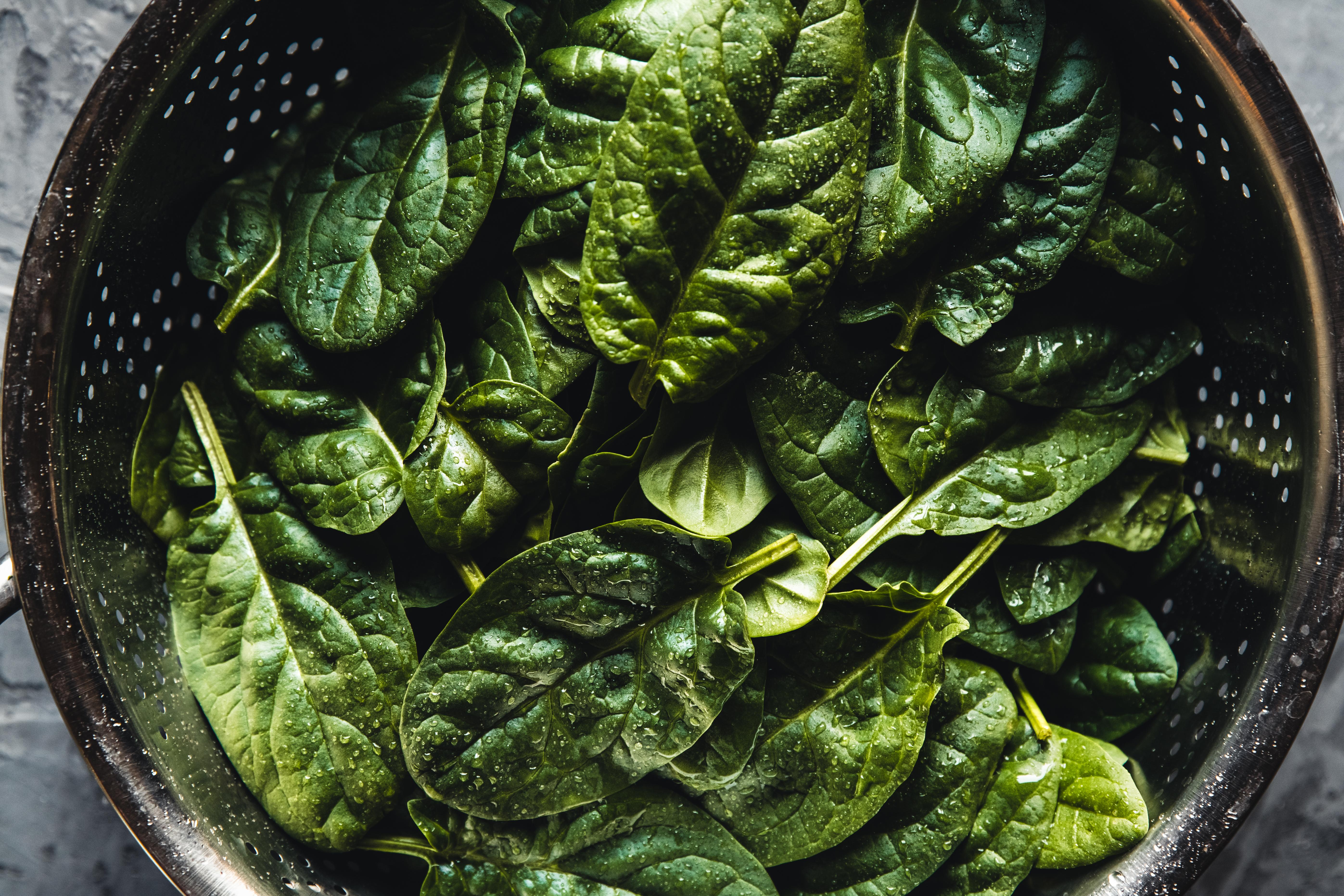
Often overshadowed by sodium and potassium, magnesium is a crucial mineral for healthy blood pressure. It helps relax blood vessel walls (vasodilation), making it easier for blood to flow. Magnesium also plays a role in balancing other electrolytes vital for heart function. Many people don't get enough. Boost your intake naturally by incorporating magnesium-rich foods like leafy green vegetables (spinach, Swiss chard), nuts (almonds, cashews), seeds (pumpkin, chia), legumes, and whole grains into your daily meals. Prioritizing this mineral supports your body's intricate system for blood pressure regulation.
13. Prioritize Omega-3 Fatty Acids
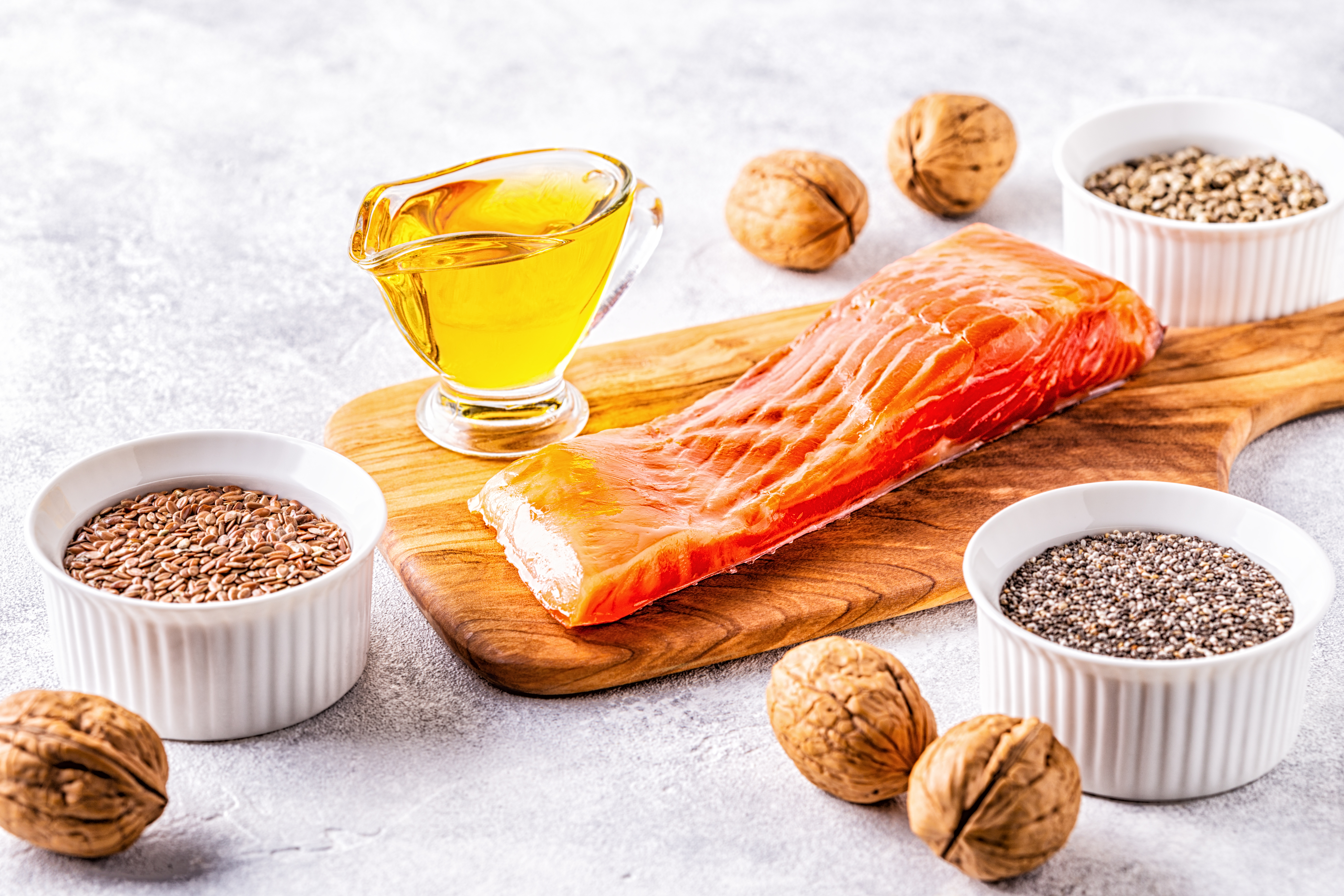
These healthy fats, particularly EPA and DHA found in fatty fish, are renowned for their heart benefits, including supporting healthy blood pressure. Omega-3s can help reduce inflammation, improve blood vessel function, and may slightly lower blood pressure levels. Aim to eat fatty fish like salmon, mackerel, sardines, or herring twice a week. Plant-based sources like flaxseeds, chia seeds, and walnuts provide ALA, another omega-3, which the body can partially convert. Including these beneficial fats in your diet contributes positively to overall cardiovascular wellness and blood pressure balance.
14. Actively Seek Out Potassium-Rich Foods
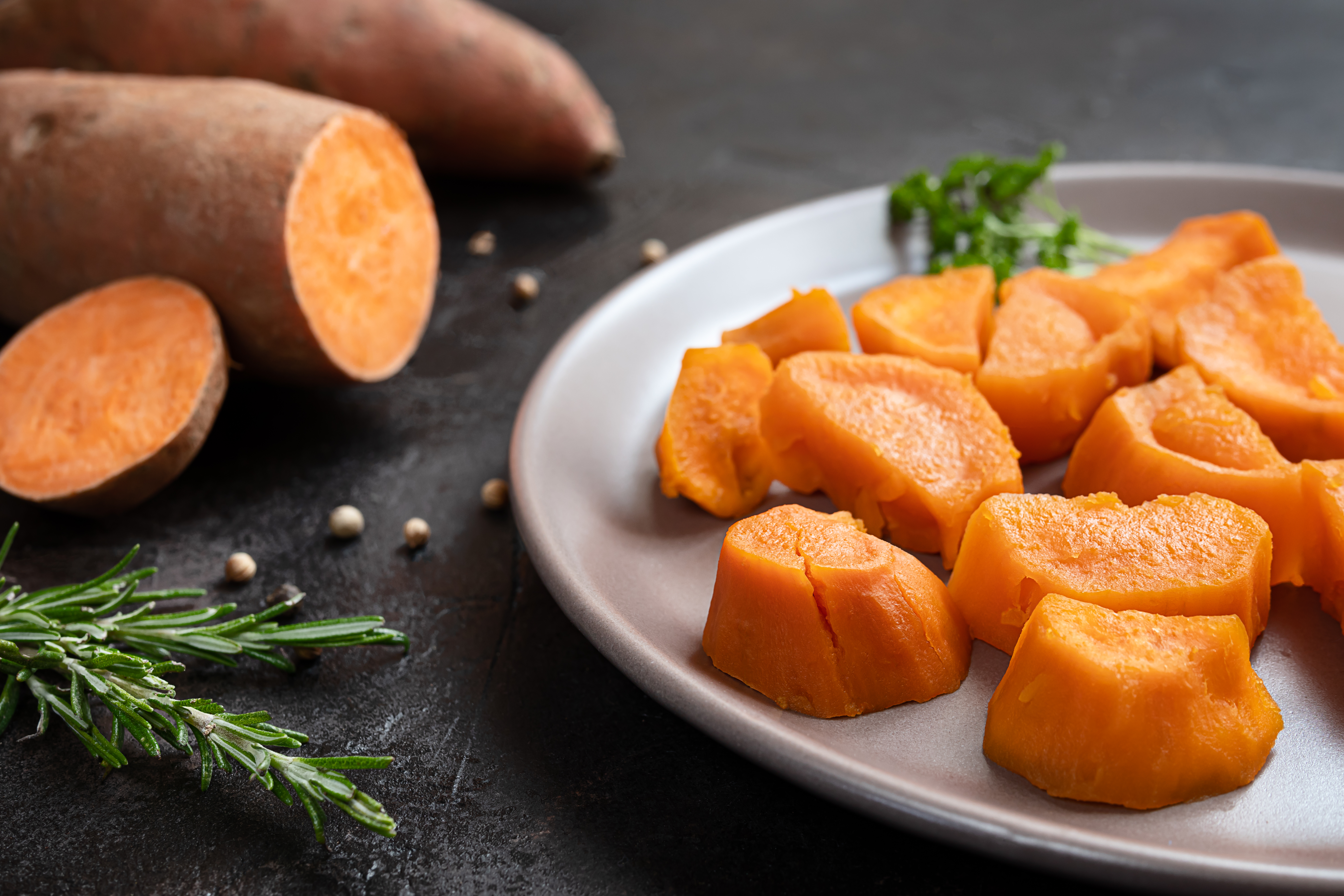
While reducing sodium is key (#1), actively increasing potassium intake is the other side of that critical balancing act. Potassium helps your body excrete sodium and eases tension in blood vessel walls. Aim for potassium-rich whole foods daily. Think beyond just bananas – include potatoes and sweet potatoes (with skin), spinach, beans (kidney, black, white), lentils, yogurt, avocados, and dried apricots. Consistently choosing foods high in potassium is a powerful, natural strategy to help counteract sodium's effects and promote healthier blood pressure readings.
15. Cut Back Sharply on Processed Foods
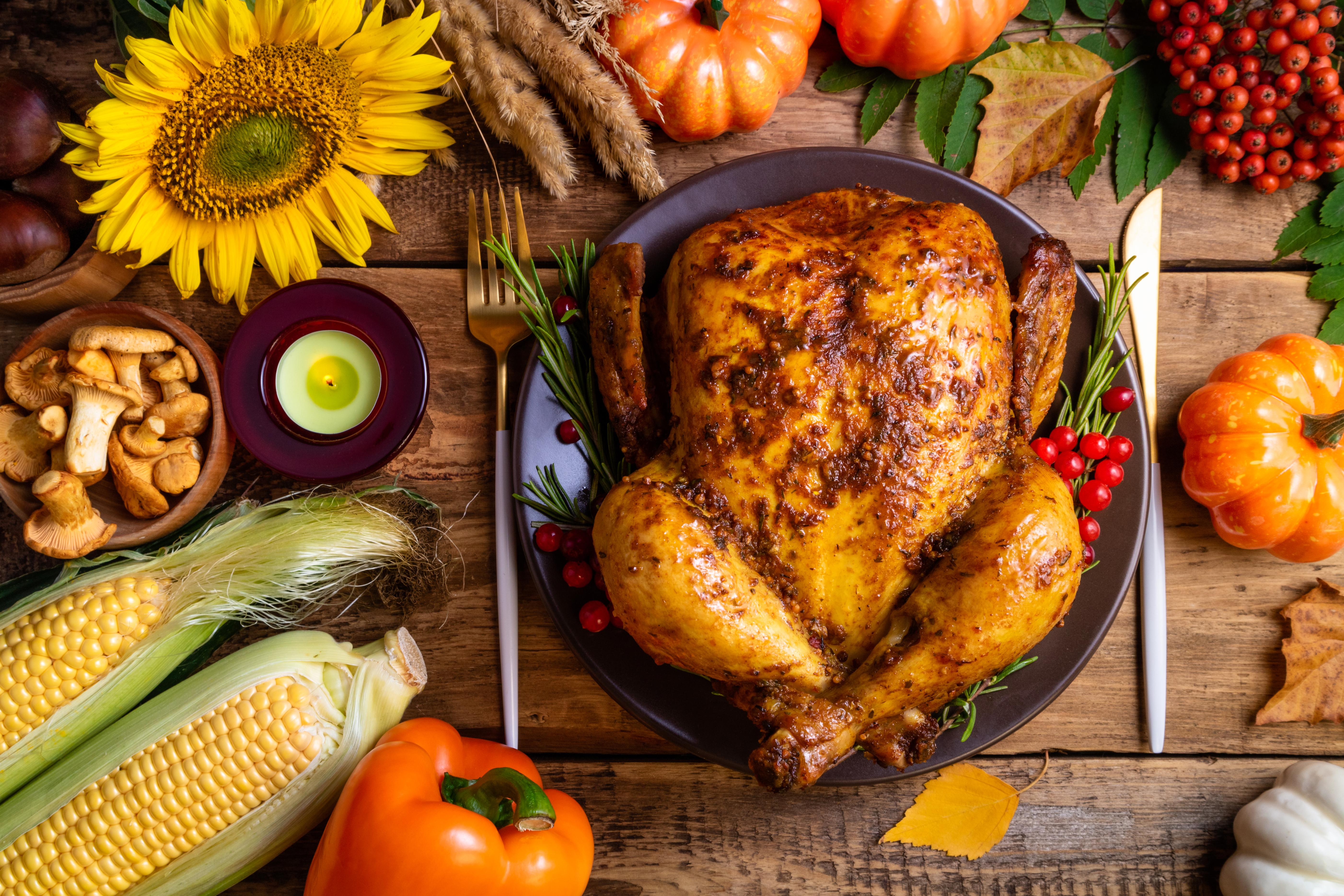
Beyond just monitoring salt shaker use, tackling processed and ultra-processed foods is vital. These items – packaged snacks, ready meals, deli meats, canned soups, sugary drinks – are often laden with hidden sodium, unhealthy fats, and added sugars, all detrimental to blood pressure and heart health. Make a conscious effort to replace these with whole, unprocessed foods like fresh fruits, vegetables, whole grains, and lean proteins you prepare yourself. Reading labels carefully and prioritizing home cooking gives you much greater control over ingredients impacting your blood pressure.
16. Spend Regular Time in Nature

Don't underestimate the power of green spaces. Studies show that spending time in nature, whether walking in a park, forest bathing, or simply sitting outdoors, can significantly lower stress hormones like cortisol, reduce heart rate, and decrease blood pressure. The calming sights, sounds, and even smells of the natural world trigger a relaxation response. Make it a habit to incorporate short breaks or longer excursions into natural environments multiple times a week. It’s a simple, enjoyable way to naturally manage stress and support cardiovascular health.
17. Listen to Calming Music Regularly

Music possesses a remarkable ability to influence our physiological state. Regularly listening to calming music – classical, ambient, meditative, or simply slow-tempo instrumental pieces – has been shown to lower heart rate, decrease anxiety, and reduce blood pressure, especially if practiced consistently. Dedicate 15-30 minutes each day to consciously relax while listening to soothing tunes. Combine it with deep breathing (#3, #18) for an enhanced effect. This accessible habit leverages the mind-body connection to gently nudge your blood pressure towards a healthier range.
18. Embrace the Power of Laughter

It turns out laughter truly might be good medicine, even for your blood pressure! Genuine laughter triggers the release of endorphins, reduces stress hormones, and causes blood vessels to expand, improving blood flow and potentially lowering blood pressure temporarily. Over the long term, cultivating a sense of humor and seeking opportunities to laugh – watching comedies, sharing jokes with friends, finding humor in daily life – contributes to overall stress reduction and cardiovascular resilience. Make time for joy and laughter; your heart will thank you.
19. Practice Specific Deep Breathing Techniques

While mentioned under stress management (#3), dedicating a few minutes daily to structured deep breathing offers targeted benefits. Techniques like "Box Breathing" (inhale for 4 counts, hold 4, exhale 4, hold 4) or "4-7-8 Breathing" (inhale 4, hold 7, exhale 8) actively slow your heart rate and calm your nervous system, directly impacting blood pressure. Practice one of these techniques for 3-5 minutes once or twice a day, especially during stressful moments, to effectively lower tension and promote vascular relaxation.
20. Nurture Your Gut Health

Emerging research highlights a surprising connection between the trillions of microbes in your gut and your cardiovascular health, including blood pressure regulation. A healthy, diverse gut microbiome seems to play a role in managing inflammation and producing compounds that affect blood vessels. Support your gut health by consuming probiotic-rich fermented foods like plain yogurt, kefir, sauerkraut, kimchi, and miso. Additionally, eating plenty of prebiotic fiber (from vegetables, fruits, whole grains, legumes) feeds these beneficial bacteria, contributing indirectly but importantly to cardiovascular wellness.
21. Enjoy Dark Chocolate (Mindfully!)
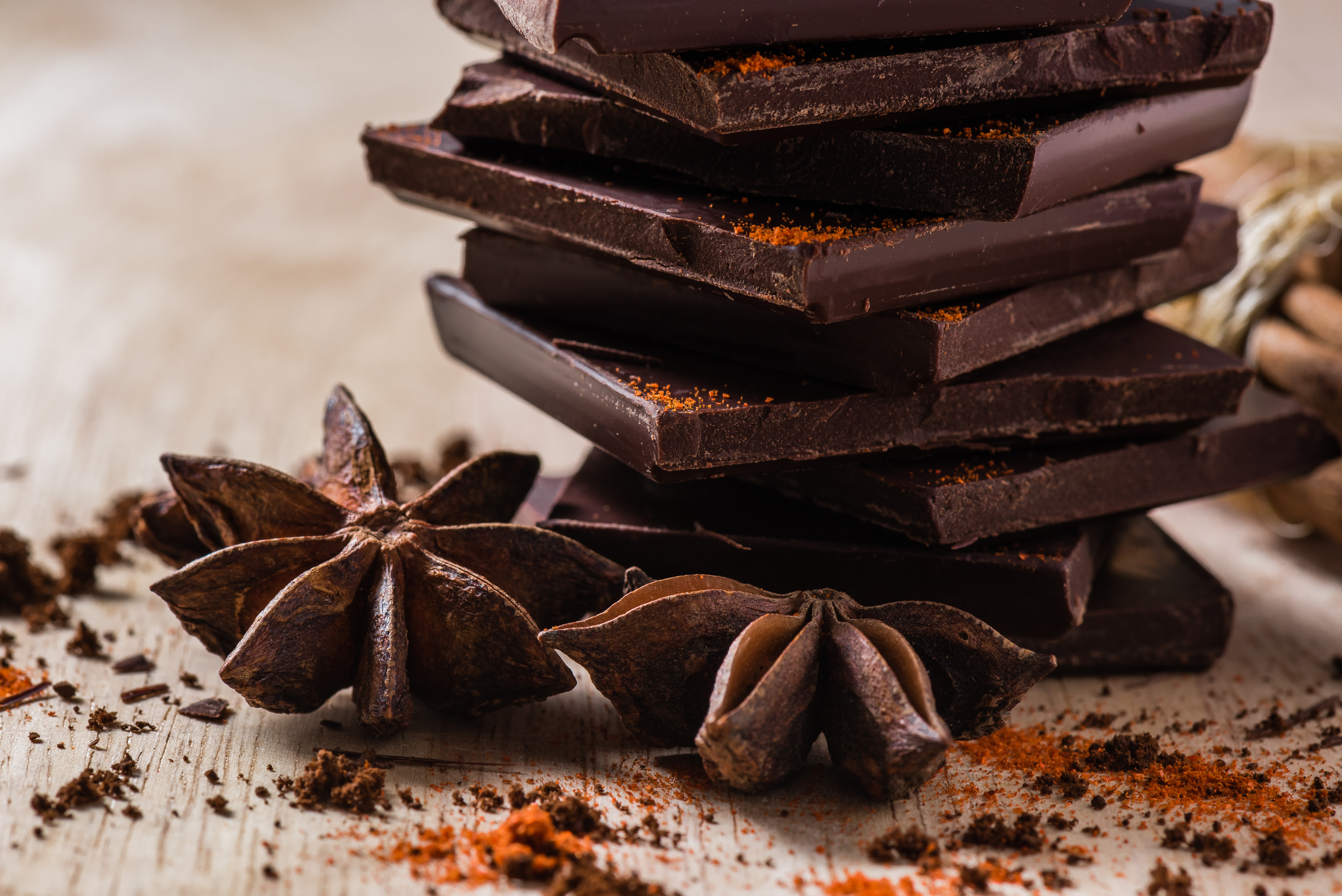
Here’s a treat with potential benefits! Dark chocolate (70% cocoa or higher) is rich in flavanols, potent antioxidants shown to improve the flexibility of blood vessels and support healthy blood flow, which can contribute to lower blood pressure. The key is moderation and choosing high-cocoa, low-sugar options. A small square or two daily can be part of a heart-healthy pattern. Don't consider milk chocolate or white chocolate substitutes – the benefits lie in the cocoa flavanols. Enjoy this delicious habit mindfully as part of your overall strategy.
22. Use Herbs and Spices Instead of Salt
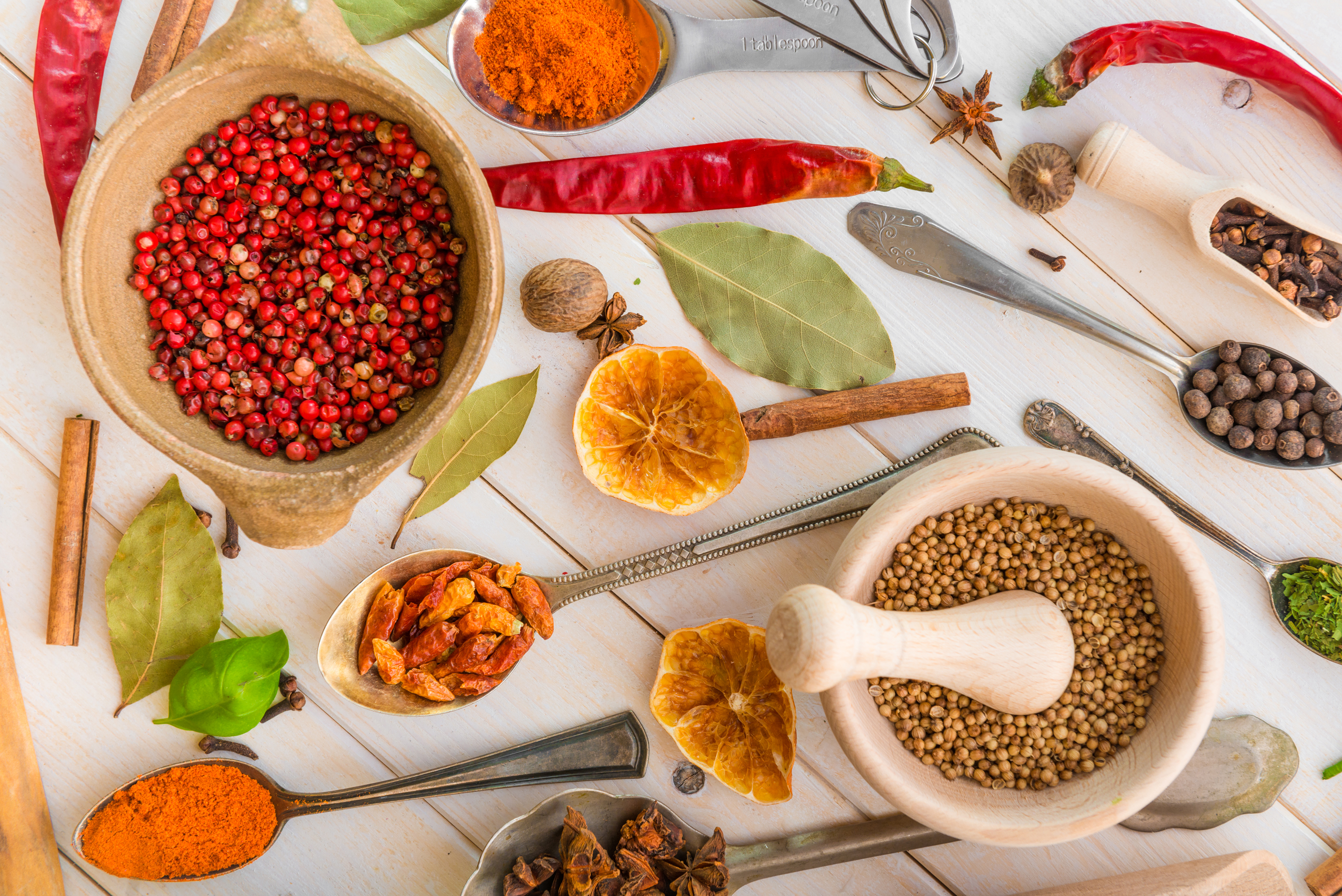
Reaching for the salt shaker is second nature for many, but reducing sodium doesn’t mean sacrificing flavor. Herbs and spices like basil, turmeric, rosemary, garlic, ginger, and cumin not only elevate your meals—they also carry anti-inflammatory and circulation-supporting properties. Garlic, in particular, has been linked to modest reductions in blood pressure when consumed regularly. Experiment with spice blends, citrus zest, or vinegar-based marinades to enhance flavor without added sodium. Re-training your palate toward herbs over salt can help you enjoy delicious food while naturally supporting healthier blood pressure levels.
23. Stand Up and Move Every Hour

Long periods of sitting can constrict blood vessels and slow circulation, subtly increasing blood pressure over time. Combat this by making it a habit to stand up and move around every 30–60 minutes—even just for a couple of minutes. Stretch, take a lap around the room, or do a quick posture reset. These micro-movements improve blood flow, reduce muscle stiffness, and activate your body’s regulatory systems. For desk workers or those with sedentary routines, this small but powerful habit can act as a pressure valve—literally.
24. Start Your Day with a Glass of Water + Stretch

Hydration and gentle movement first thing in the morning set the tone for balanced blood pressure throughout the day. After hours of sleep, your body is slightly dehydrated, which can temporarily raise blood pressure. Drinking a glass of water upon waking helps rehydrate and support blood volume regulation. Pair this with 5–10 minutes of light stretching to stimulate circulation and cue your nervous system to shift into a calm, alert state. This simple combo delivers big benefits for your cardiovascular rhythm before your day even begins.
25. Keep a Gratitude Journal

The link between gratitude and physical health is more than poetic—it’s physiological. Research shows that regularly practicing gratitude can lower cortisol, improve sleep, and reduce markers of inflammation—all of which contribute to healthier blood pressure. Take 5 minutes at the end of your day to jot down three things you’re grateful for, big or small. This daily reflection helps reframe stressors, promote emotional balance, and indirectly support cardiovascular health. Over time, this small mental shift builds a more resilient nervous system and steadier blood pressure.
26. Limit Screen Time Before Bed

Late-night screen use can disrupt your sleep cycle and elevate evening cortisol levels, both of which negatively impact blood pressure. The blue light from phones and computers suppresses melatonin, making it harder to wind down naturally. Commit to a digital curfew—at least 30–60 minutes before bed. Instead, opt for reading, journaling, or other calming rituals that help signal your body it’s time to rest. Better sleep = better blood pressure regulation. This one habit can quietly shift your entire cardiovascular rhythm in the right direction.
27. Cook with Beetroot—Raw or Roasted

Beets are a natural source of dietary nitrates, compounds that convert into nitric oxide in the body—a molecule that relaxes blood vessels and improves blood flow. Studies show that drinking beet juice or eating cooked beets can help lower systolic bxlood pressure in both hypertensive and prehypertensive individuals. Roasted, raw, or juiced—this earthy root is easy to incorporate into salads, smoothies, or side dishes. Beets are also rich in potassium and fiber, further supporting heart health. Consider adding them a few times a week to naturally help regulate blood pressure without any side effects.
28. Practice Cold Face Immersion

It might sound strange, but dunking your face in cold water activates the “diving reflex,” a natural response that slows heart rate and calms the nervous system. This vagus nerve stimulation has been linked to a rapid reduction in acute stress and blood pressure. To try it safely, submerge your face in a bowl of cold water for 10–15 seconds or place a cold, wet cloth on your face and neck. Use this as an emergency reset during stressful moments—it’s a powerful, fast-acting tool for recalibrating your cardiovascular system without medication or meditation.
29. Use a Weighted Blanket for Deeper Sleep

If you struggle with sleep-related blood pressure spikes, a weighted blanket might help. These blankets apply gentle, even pressure that mimics deep touch stimulation, promoting relaxation and triggering a parasympathetic nervous system response (aka your “rest and digest” mode). The result? Lower heart rate, reduced cortisol, and improved sleep quality—all vital for keeping blood pressure in check. Choose a blanket that’s roughly 10% of your body weight for optimal effect. Try using it consistently for a week or two and notice how it transforms both your sleep and your cardiovascular calm.
30. Try Morning Sunlight Exposure

Starting your day with 10–15 minutes of natural sunlight helps regulate your circadian rhythm, reduce cortisol levels, and even increase nitric oxide production in the skin—contributing to vasodilation and lower blood pressure. Morning light also promotes melatonin balance, improving nighttime sleep, which further supports healthy BP. Step outside within an hour of waking, ideally without sunglasses or glass in between. Even cloudy skies provide enough natural light to benefit your system. Pairing sunlight exposure with light activity like a walk enhances the effect. It’s a surprisingly simple but powerful habit for cardiovascular health.
31. Sprinkle Flaxseeds into Your Meals
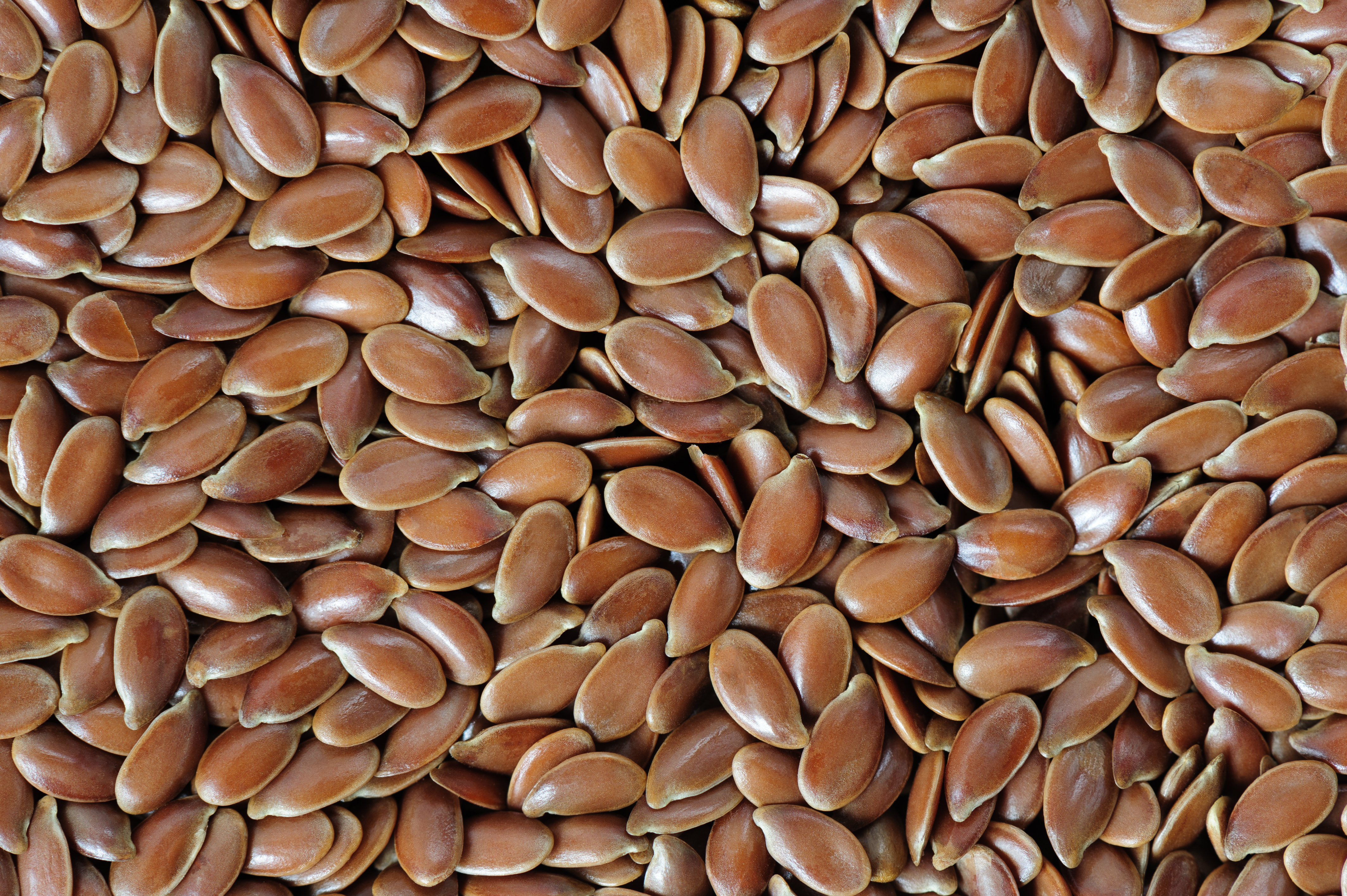
Tiny but mighty, flaxseeds are rich in alpha-linolenic acid (ALA), fiber, and lignans—compounds shown to reduce blood pressure when consumed consistently. Studies suggest that eating just a few tablespoons of ground flaxseed daily can lead to notable improvements in both systolic and diastolic blood pressure over time. They’re also great for reducing LDL cholesterol, another win for heart health. Add them to smoothies, oatmeal, salads, or baked goods—but make sure they’re ground for better absorption. This tiny pantry staple offers an effortless nutritional upgrade that supports a steady, resilient heart.
32. Introduce a Daily 'Shot' of Bitter Greens (Vasorelaxation)

This involves engaging your taste buds to benefit your blood vessels. Compounds found in bitter foods—like the isothiocyanates in arugula or the lactones in certain herbal bitters—activate taste receptors not just on your tongue, but also on the lining of your blood vessels. When these vascular bitter receptors are triggered, they send signals that lead to immediate vasorelaxation (widening of the blood vessels), which can directly and quickly lower blood pressure. Try taking a small, focused "shot" of concentrated bitter greens (like a tablespoon of arugula pesto, a sip of celery juice, or a micro-dose of a bitter herbal tonic) before a meal. This habit targets blood pressure via a unique sensory-physiological pathway.
33. Ankle Pumps During Downtime (Circulatory Efficiency)

Harness the power of ankle pumps while you are already sitting down (e.g., watching TV, working at a desk). Simply raise your toes toward your shin, then point them down toward the floor, repeating this motion 15–20 times. This small, continuous movement activates the muscles in your lower legs, which function as a secondary pump to push blood and stagnant fluid back up toward the heart. Improved venous return reduces fluid buildup in the extremities and lowers the strain on your cardiovascular system, contributing to better overall circulatory efficiency and helping to manage blood pressure without having to leave your chair.
34. Practice 1-Minute Fascial Neck and Jaw Release

Chronic stress causes deep, persistent tension in the jaw and neck muscles (the cervical fascia), which can lead to stiffness and indirectly restrict blood flow to the head, contributing to hypertension. Take one minute daily to gently massage the muscles under your jawline and behind your ears, or simply perform slow, gentle jaw opening and closing movements. This practice targets the fascia surrounding the vagus nerve and major carotid arteries. By releasing this tension, you directly signal the parasympathetic nervous system (rest and digest) to activate, promoting immediate relaxation, calming your heart rate, and supporting the release of tension that constricts blood vessels.
Your Daily Path to Healthy Blood Pressure

When it comes to blood pressure, consistency—not intensity—is what creates lasting change. You don’t need extreme diets, complicated routines, or expensive gadgets. What you need are small, effortless habits done daily—sips of water before screens, a handful of flaxseeds, a walk in the sun, a stretch between emails. These micro-choices become your quiet defense against the silent strain of imbalance. And the beauty? They don’t just regulate numbers on a monitor—they enhance how you sleep, think, move, and feel. With 31 simple tools in your toolkit, you now have a science-backed blueprint for cardiovascular stability that fits into real life. Whether you're managing hypertension, recovering from burnout, or simply protecting your future self, these habits offer a clear way forward. Because balanced blood pressure isn’t a mystery or a miracle—it’s a rhythm. And with each small step, you’re already keeping the beat.